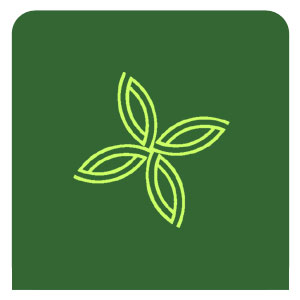
Plant Selection Guidelines
Plant*SF encourages the
use of native, local and drought tolerant plants. Native Plants are
those plant species "which occur naturally in a particular region, state,
ecosystem, and habitat without direct or indirect human actions" (Federal
Native Plant Conservation Committee, 1994). Locally Native Plants
are a population or ecotype of native plant species that were grown from genetically
local plant materials and preferably from the same elevation and local climate
as your garden. Endemic Plants are a those which are native to or confined to a certain region - found naturally only in a particular place and nowhere else on the planet. Climate-Adapted Plants
are those which will survive with the typical or somewhat less than typical
amount of rainfall in the region where they live. They do not require irrigation
or regular watering. Species adapted to San Francisco climates, Drought-Tolerant is a term used to describe plants which tolerate low water climates. Drought-tolerant plants are climate-adapted to arid regions. San Francisco is not considered to be an arid region, though some drought-tolerant plants, such as succulents thrive here. Weeds and Invasive Species should be avoided. See which ones: See the Plant
Suppliers List for suggestions of where to find plants for your garden.
Let them know you are looking for Native, Local and Climate Adapted plants
if you don't find them readily available. PLANT LISTS of commercially available species: While when selecting plants
you will want to take into consideration the amount of sun, wind and moisture
for your garden. Plants should be selected and placed for their
size when mature. Many species of plants vary in size depending on variety.
Further, many of these species are self-propogating, by seeds, runners or
bulbs and when mature, can be scattered or divided to cover more area and
to place in other gardens. Many plant species are climate-adapted to San Francisco conditions. Here are just a few hearty ones appropriate for sidewak gardens to get you started: Did you know that the
Official Flower of the City of San Francisco is the Dahlia? "The dahlia, long
regarded as the city flower, was officially recognized as such on October
4, 1926. The Board of Supervisors
in resolution No. 26244 said, "The dahlia partakes essentially of the
character of our beloved city, in birth, breeding, and habit, for it was
originally Mexican, carried thence to Spain, to France and England in turn,
being changed in the process from a simple daisylike wild flower to a cosmopolitan
beauty." This ancient and
showy plant was discovered in central Mexico by the Spanish, who sent samples
back to Madrid. There, in the late 1700's, the dahlia was given its name
by an archbishop to honor Dr. Andreas Dahl, a Swedish botanist, who had
studied them in the botanical gardens. The Dahlia Dell is
just east of the Conservatory in Golden Gate Park. The best time to see
the Dahlias in bloom is from July through September." While neither native nor
drought-tolerant, this flower is especially
popular in San Francisco. Instead of including them in your water-wise garden however, consider appreciating them at the Dahlia Dell - just east of the Conservatory of Flowers in Golden Gate Park, courtesy of the Dahlia Society.
- at this Plant Right website.
- at the San Francisco Weed Management Area website.
San Francisco Native
Plant List.
Sunset District Sample Plant List.
Mission District Sample Plant List.
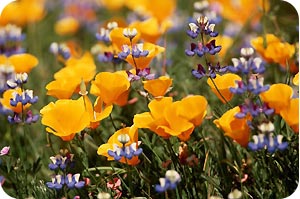 California Poppy (California State Flower)
California Poppy (California State Flower) 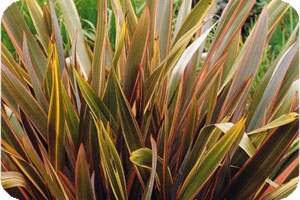 Flax
Flax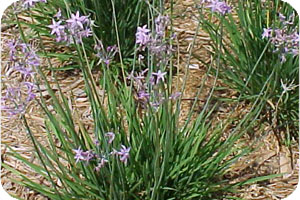 Society Garlic
Society Garlic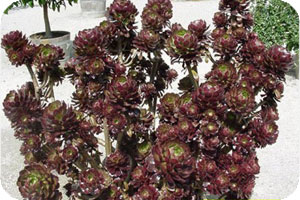 Aeonium
Aeonium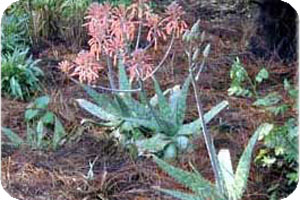 Aloe
Aloe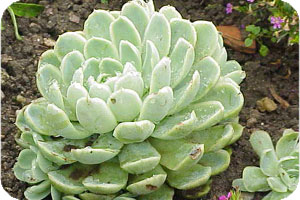 Hen and Chicks
Hen and Chicks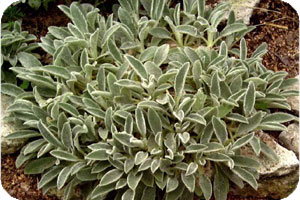 Lamb's Ear
Lamb's Ear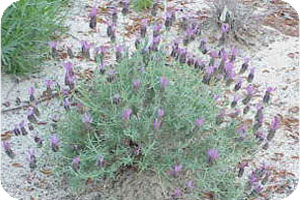 Lavender
Lavender
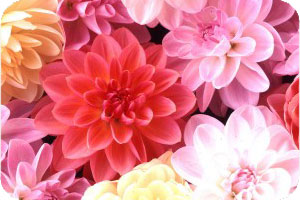 Dahlia
Dahlia The following
is an excerpt from www.sfgov.org:
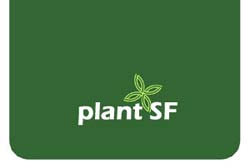
Home | Mission Statement | Permeable Landscaping | Featured Projects | Resources | How-To | Forms | Contact